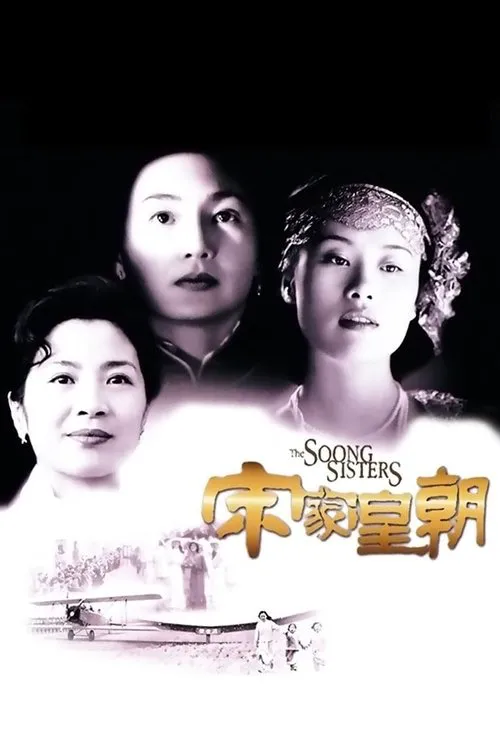The Soong Sisters

Plot
The Soong Sisters is a 1997 epic biographical film directed by Chinese filmmaker Chen Kaige. The film tells the story of three extraordinary women, Ai-ling, Ching-ling, and Mei-ling, who hailed from a prominent Chinese family and were at the forefront of their nation's transformation in the early 20th century. The narrative begins in the 1910s in China, where the Soong family is portrayed as a respected family in Shanghai. The family's patriarch, Charlie Soong, recognizes the importance of education in the Western world for his daughters' future and decides to send them to the United States. Ai-ling, the eldest, is sent to Cornell University, Ching-ling to Wellesley College, and Mei-ling to Wellesley College as well. In America, the sisters experience significant differences between Chinese and Western cultures. Ai-ling, however, finds solace and becomes enamored with the American way of life. Upon her return to China, she marries H.H. Kung, a wealthy and influential businessman who becomes the financial advisor to the government. Their union is marked by luxury and power, but also by the emptiness and shallowness of their relationship. In contrast, Ching-ling's life is driven by politics and passion for revolution. She marries Sun Yat-sen, the founder of the Kuomintang and the revolutionary leader who will shape modern China. Their union is filled with intellectual discussions and a shared vision for a democratic China. As Sun Yat-sen's health fails, Ching-ling becomes increasingly involved in the revolution, and their love remains strong until his untimely death. Mei-ling's life, on the other hand, follows a path marked by romance, politics, and duty. She marries Chiang Kai-shek, who will eventually become the leader of China during World War II. The couple's initial relationship is built on love, but ultimately, Mei-ling finds herself caught up in the complexities and demands of politics. Chiang Kai-shek's rise to power also involves struggles and power struggles with other leaders, leaving Mei-ling isolated and torn between loyalty to her husband and her own sense of duty to China. Throughout the film, the Soong sisters' lives intertwine with each other, yet their individual journeys reflect their contrasting priorities and the divergent paths they choose to take. Ai-ling struggles with the emptiness of her marriage and the lack of fulfillment in her life, Ching-ling dedicates herself to the revolutionary cause, and Mei-ling tries to balance her roles as a wife, a mother, and a leader. The film culminates in the midst of World War II, when Japan occupies China and the country is divided. Mei-ling, as first lady, plays a crucial role in rallying the Chinese people against the Japanese occupation. Meanwhile, Ching-ling becomes involved in the resistance movement and continues to advocate for democracy and freedom. The Soong Sisters is not just a biographical portrayal of these three extraordinary women but also an exploration of China's tumultuous history. The film shows how the Soong family's wealth, influence, and connections enabled them to navigate the complexities of China's transformation from a traditional society to a modern nation. The Soong Sisters' stories also raise questions about identity, loyalty, and power. The sisters, each in their own way, must balance their personal aspirations with the expectations placed upon them as members of a prominent family and as leaders in their own right. Their lives reflect the difficulties and contradictions of living in a society where women were supposed to conform to traditional roles, yet were also expected to excel in politics and public service. The Soong Sisters' stories also highlight the complexities of romance and the sacrifices they made in the name of duty, loyalty, and politics. The film presents a nuanced portrayal of the relationships between the sisters, between the sisters and their husbands, and between the sisters and their country. The Soong Sisters is a sweeping epic that captures the spirit of a nation in transition, a testament to the strength and resilience of these remarkable women, and a poignant reminder of the enduring power of love, loyalty, and sacrifice.
Reviews
Recommendations




